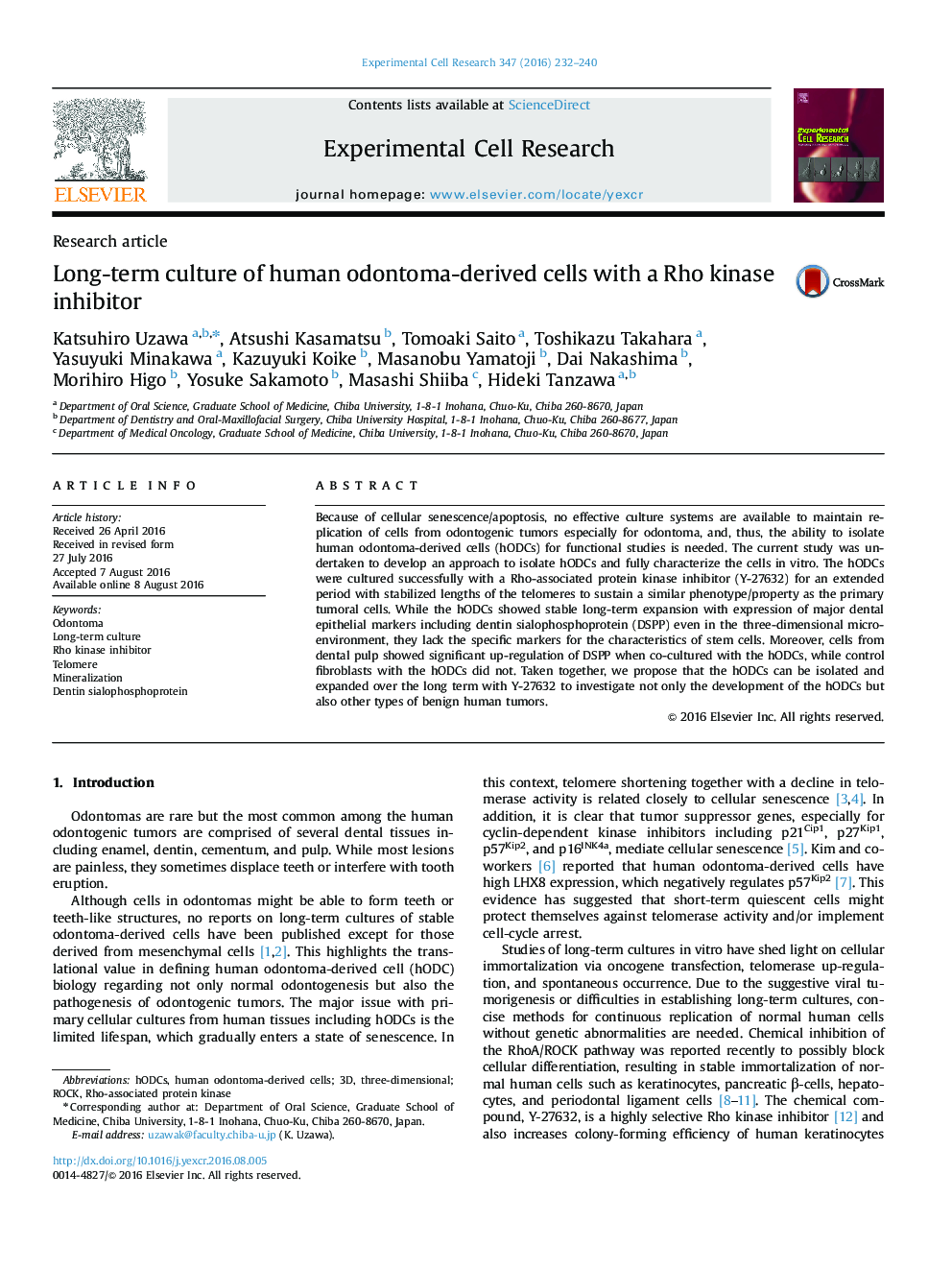| Article ID | Journal | Published Year | Pages | File Type |
|---|---|---|---|---|
| 2129902 | Experimental Cell Research | 2016 | 9 Pages |
•Odontoma-derived cells (hODCs) can be expanded for a prolonged time with Y-27632.•Y-27632 stabilizes the telomere length during the course of the long term culture.•The long-term cultured hODCs has odontogenic phenotype in the presence of Y-27632.
Because of cellular senescence/apoptosis, no effective culture systems are available to maintain replication of cells from odontogenic tumors especially for odontoma, and, thus, the ability to isolate human odontoma-derived cells (hODCs) for functional studies is needed. The current study was undertaken to develop an approach to isolate hODCs and fully characterize the cells in vitro. The hODCs were cultured successfully with a Rho-associated protein kinase inhibitor (Y-27632) for an extended period with stabilized lengths of the telomeres to sustain a similar phenotype/property as the primary tumoral cells. While the hODCs showed stable long-term expansion with expression of major dental epithelial markers including dentin sialophosphoprotein (DSPP) even in the three-dimensional microenvironment, they lack the specific markers for the characteristics of stem cells. Moreover, cells from dental pulp showed significant up-regulation of DSPP when co-cultured with the hODCs, while control fibroblasts with the hODCs did not. Taken together, we propose that the hODCs can be isolated and expanded over the long term with Y-27632 to investigate not only the development of the hODCs but also other types of benign human tumors.
